Greetings, fellow metalheads,
Times seem grim. The orcs have taken Osgilliath and approach the gates of the white city. Western Civilization is still dying, accelerated by democracy and consumerism, but rotten to its core with a lack of hope. Metal once gave that hope by showing us an alternate morality comprised of effective realism and epic mythos. Many of us want to live in that time again, but it will not happen through democracy or consumerism. We must choose our leaders and then all of us participate in restoring and advancing the greatness we have known.
Mythological Metal
What separates metal from any other genre? Since its founding days, the metal genre has had a perspective that is bigger than the human individual, or the attitudes within the group. Metal takes the view of history, of myth and legend, and of nature, but never the individual human. In a world of “yeah yeah baby” rock songs and introspective navel-gazing ballads, metal is like the hand of death itself: it proclaims the limits of human knowledge and the smallness of the individual, which is a way of getting people to look at the broader consequences of their actions. This is significant because most people look at only what they want in the moment, and the only consequences they think of are social, such as negative results for them personally. From the mythological-political Spenglerian view of “War Pigs” to the metaphorical mythos of “Hardening of the Arteries,” and even venturing into more esoteric fare like Demilich or Averse Sefira, heavy metal thrives when it is mythological. When it attempts to write about real-world issues in concrete human experience or speak from an individual perspective, it falls into the same sappy tropes as hard rock and becomes the world of navel-gazing indie combined by desire-driven pop.
The Return of Experts
After “Eternal September,” the internet embarked on a course to being essentially spam. Most of it is now controlled by a handful of companies — Amazon, Google, Apple, Netflix and Twitter — because people go to these sites to interact with others instead of visiting individual sites for the content there. This mirrors what happens in the real world, where anything which requires a brain to understand is in the minority and whatever emphasizes group activities — sports, pop, shopping, politics — takes up most of the focus. When one goes to a book store, most of what greets the customer is novels, self-help guides, and books about mainstream culture. Tucked away in the back are the information resources and literature. The same thing happened to the internet, and then to metal. Since experts were no longer required, people ran out and downloaded or streamed whatever struck their fancy. That caused music to plummet in quality because novelty and uniqueness prevailed over quality. In return, people are returning to the radio model in order to restore the strength of experts and find quality music again, or are simply disconnecting from any search for music of depth at all.
A Few Finds
Gevurahel – Un Obscuro Ego Celestial
This release combines the unhinged tradition of metal from the Americas with the slower, strobing atmospheric work of Eastern European bands. Like Havohej or Resuscitator, Gevurahel specialize in pushing the boundaries of randomness by dropping in momentary changes in direction, barely-related riffs and sudden tempo and pattern changes, but pull it together with a strong and streamlined sense of theme. The vocals resemble the ragged cries of a solitary confinement prisoner, and drumming picks up on the vibe of the earliest Norse bands to be more of a warlike metronomic texture than an obvious lead. Riffs fit together awkwardly and then integrate, at which point the band diverts and then returns with a new interpretation, making the original ungainly riff seem stable and the new riff open other possibilities. This album could focus more on bringing songs to dramatic peaks, but avoids the “wallpaper effect,” and while the vocals could do more for the music, they do not detract from it excessively.
Path of Samsara – The Fiery Hand
Metal could be understood as a tension between extremists and mainstream moderates. The moderates want hard rock with more guts, and the extremists cook up stuff like death metal that is great until all the people of minimal cognitive activity get involved. The two play off across the generations: for instance, after Black Sabbath, a flood of bad imitators came about, so metal veered toward the Led Zeppelin/Deep Purple end of the spectrum with the 70s and early 80s stadium rock styled heavy metal. As that trend played out, extreme metal rose up and then faded when black metal hit the Hot Topic stores and Wal-mart. Now, underground metal has become most late punk and indie rock, with a few metal riffs folded in, and so many metal bands have turned to 1970s inspirations, such as Jess and the Ancient Ones, Tau Cross, Fields of the Nephilim and Killing Joke, the latter two of which are not metal but picking up on its influence. Path of Samsara is mostly what one might call dark rock, mixed with the atmosphere of industrial and the aggression of heavy metal; it returns metal to its influences with The Doors and other dark rock bands and makes for an easier listen but keeps much of the thematic approach of metal. While this will not please the blood ‘n guts metalheads, it shows one option for metal: detour through mainstream rock for a generation while we wait for the funderground and hipster empire to fall.
Katharsis – 666
At the time of its release, the underground seemed to widely praise this album, which was a mistake in my view because it is one dimensional. As countless people reminded me, it preserves the “mood” of classic black metal, but in this case “mood” means tempo and production. None of the grandeur, mystery and danger is there; only a grinding assertion of certain intellectually vague but symbolically tangible ideas, much like modern politics. Musically, it resembles early Blasphemy plus Watain: grindcore riffs reduced to chromatic scale and cadence rhythm, with melodic choruses overlaid that aim toward a diminished interval in conclusion. The result gives a “feeling” like that of classic black metal but without the backup of interesting song structures, varied melodies, some correspondence between structure, melody and distinct mood. Instead we have recycled Darkthrone aesthetics, Blasphemy technique, and melodic candy-metal melodies used for the Sodom-style chanty choruses. The songs do not hold up as there is no topic, only a general rhythmic thrust that the chorus tries to stay consistent with, and these are mostly circular structures with a few chaotic deviations that are stage-play rather than musical development. The underground got trolled, and Katharsis opened the door for infinite bedroom blasting black metal projects with about as much artistic relevance or interest as a cement mixer. For the basement NEETs at FMP/NWN who spend their days selling used panties from their sisters on eBay and “art” made of feces on Etsy, this might provide a slight lift, but it helps to have mental health problems so that you see only the trees and not the forest, because in the case of this failed album, the forest is made of plastic trees scattered around Chernobyl for the tourists.
Immolation – Kingdom of Conspiracy
If you want to know the best from this band, check out the first half of their first album and all of the second. After that, like stoners on a nostalgia trip, they have been trying to recapture those moments when they transitioned from speed metal to death metal and shocked themselves with what they might find. Kingdom of Conspiracy is the short bus version of Immolation: the same tropes, simplified, into two-riff verse-chorus songs which emphasize a catchy line and a melodic hook but as songs, do not so much fail to add up as fit so precisely that the two riffs add nothing to one another but a mechanical compatibility, like hooking up a Macintosh to a Fleshlight. This album in fact resembles the late 1980s speed metal projects when just about everyone had lost hope for the genre and just wanted to cash in, so they re-wrote Motley Crue songs with harder choruses and sold them to the kids coming out of the suburbs into a ruined civilization, looking for some claim at importance before they gobbled down the blue pill of jobs, insurance, compassion and coupon-driven shopping. Encountering Kingdom of Conspiracy is like finding a partial fossil and thinking, “What a great creature this once was!” Instead of the real deal, you have Immolation given the Big Mac treatment: simplified, sugar and salt added, with real purpose except to take up a few minutes of your time and some of your cold hard cash.
Order From Chaos – Stillbirth Machine
One can disguise randomness — for only so long — by maintaining a forward drive in rhythm that sweeps up all riffs and makes them seem related because they are forced into similar tempi and thus form in order to fit within the parameters offered. Order From Chaos both does this, and engages in the worst of all metal sins, which is to break its motion with “poignant” or “aggressive” stops that just serve to interrupt the entropy-laden chaotic disaster. The band gets into the full swing of things, at which point the irrelevance of its parts reveals the death of gestalt, and then breaks rhythm as if repeating important phrases slowly, but nothing comes of it. This entire album is like turning on a garden hose and listening to the water. Vocals are delivered in that breathy way that indie pop would be if its Williamsburg lease were unexpectedly not renewed, but mostly breathe over the microphone. On aggression, this band does well: speed is high, the drums are hit more than a sports wife, and guitars thrash like an epilepsy patient force-fed PCP. But really, at the end of the day, what it comes down to is that the parts do not relate to one another enough to tell a story, or even convey an emotion, except perhaps someone getting tased by the cops at 4 AM when all he wanted was some In ‘n Out and a chance to go home and smoke meth and play Madden. The funderground slavishly worships this album but for all of its catchy rhythms, it reveals only its own emptiness and drives people slowly toward the kind of teeth-gritted repetition that was previously only available from working an assembly line.
Noire – The Tracks of the Hunted
Unlike many things reviewed here, Noire is not merely bad, but a fraud. The press release bloviates on about how this album is a cross between black metal, folk and ambient. That holy triad has been a goal ever since Burzum and Enslaved blew the field wide open, but what you find on The Tracks of the Hunted is actually competent indie rock with two tracks that use heavy distortion and rock riffs done up in power chords. The “folk” parts have more in common with mainstream album oriented rock of the 1990s than anything remotely related to folk, and the “ambient” consists of a few transitions and intros which are mostly overdubbed with more of the same rock strum patterns and arpeggios used to forge the “folk” aspect. Every now and then, someone sings slowly like an indie rock band trying to be deep. Nothing is incompetent about this, but it is rather boring because these pieces never come to any kind of peak or realization, instead serving as the kind of background music favored by grocery stores just before closing time. The black metal tracks go nowhere as well and do not even achieve the basics of aggression or melancholy that defined the genre. Instead, it feels like one is listening to the soundtrack to a movie about stupid people who fear they will fail at life, then fail at life, and finally declare it all very OK because there is a great sour IPA just waiting in the cooler over there and hey, Arrested Development season one just came up on the iPhone. Maybe this musical fraud will fool the “everything is great” metal reviewers who just want jobs at record labels, but for a fan with even the basics of understanding of the genre, this will be an insult and an epic waste of money.
Athame – With Cunning Fire and Adversarial Resolve
Flashback to 1995. One of your friends, a punk rocker, has just gotten ahold of what he calls “the sickest grindcore ever.” You invite him over, break out the Milwaukee’s Best and a joint, then throw on the record. You are instantly nonplussed and halfway through it, thoroughly disappointed. They just do not get it. To punkers, grindcore meant more intense punk, but it missed on the metal ability to make songs that reached a peak and then took another path which united the conflict of all the earlier riffs but gave it a new context. Athame does none of this, but runs through old punk, metal and grindcore tropes at random, periodically reaching a vantage point of conflict and then letting it run through their fingers like extra jism at a goat bukkake party. To state that this music goes nowhere would be wrong; it goes many places, and hits on some good riffs, but never manages to knit them together in any meaningful way and then fades out, like a dimestore magician exiting the stage after the rabbit comes out of the hat stone cold dead and leaking urine. Like so many musicians now, these guys are studious. They sat down and studied grindcore and metal and picked up on the riff forms they needed, but never figured out how to put them together because that requires skills that cannot be taught. The tricky part is that this album could fool you for the first few listens, and then after buying it and keeping it around for a few weeks, you would realize that not only was it boring, but its window of novelty had passed and that no one else wants to buy it. When people say the nostalgia wave in metal must die, Athame is what they are speaking of.
Profanatica – The Curling Flame of Blasphemy
In the distant future, two bored interns on a deep space transport immersed in the Andromeda Belt are listening to music on their telepathic speakers. One asks what they are listening to. “I dunno,” says the other. “It just says ‘Profanatica.'” The reason for this is that by this future date, supercomputers have analyzed Profanatica and found that the band put out two albums: some with interesting takes on the same ideas, and some which just flog those ideas with slightly varied aesthetics for the sake of having a new release. As a result, the computer number-crunched between similar riffs and distilled all of Profanatica down to a neural network program called LEDNEY.EXE which algorithmically generates new Profanatica albums like turning on a tap of water. Where this band is brilliant at its peak, the valleys are forgettable, and The Curling Flame of Blasphemy rehashes classic Profanatica and more interesting later albums like Profanatitas de Domonatia with slightly more professional polish but less interest. Songs follow the paint-by-number-format and like speakers at a drunken funeral stand up, recite their lines, introduce one question and immediately answer it with the topic of their speech, then fall over and are kicked out of sight by the obese funeral director. It is sad to see this band fall into the same pointless droning badness as the rest of the genre, but there is great happiness here too: the album has ended and you and I both are free of it.
Destroyer 666 – Wildfire
This album presents the kind of bad also-ran speed metal that people fled toward the close of the 1980s because it was everywhere. Closets overflowed with albums built around near-miss “epic” themes which featured abundant downstroke riffs and warmed over NWOBHM and hard rock riffs with added guitar noodling to disguise the vast emptiness within, much like portly businessmen discover fetishes in their mid-40s to conceal their utter lack of any impulse beyond consumption, attendance of job, and defecation. In fact, most of them had more fun getting paid to excrete every morning than they ever did with the fondue sauce, French maid costume, whip and bucket of horse feces. Speaking of horse feces, Wildfire mixes in quite a bit of Sodom aesthetics but always falls back on those bouncy, thumping hard rock riffs that would be familiar to any Motley Crue fan from the mid-1980s. If the tedium peeks through the clouds too much, they drop in some bluesy solos and lots of hoarse reverbed vocals which sound like Lemmy explaining why he was out late to the nuns after he could only score generic cigarettes and goldfish tranquilizer instead of his preferred tipple. The fanbase of this album undoubtedly consists of people who find the world a terrifying and baffling place (which it is) until someone trots out the old tropes and clicés of music that they listened to when they were growing up or first discovering metal. If you just could not get enough of those old Metal Church, Heathen and Forced Entry albums, Destroyer 666 should be your first stop and the rest of us are grateful if you will take it far away and hide it from the light or, gods forbid, amplification.
Grave Miasma – Endless Pilgrimage
The band should have taken a cue from Brian Eno and named this one Music For Moving Refrigerators. They did correctly name one of its attributes, which is that it feels endless… outside, there is a world of beauty and goodness to explore, and down the hall, there are fascinating books on how to use Microsoft Word or boil eggs that are positively entrancing in comparison. Endless Pilgrimage comes to us from the sub-sub-genre of quasi-death metal that attempts to create an appearance of storming violence to its music by coming on with a wall of sound, but instead merely sounds like someone shouting over a diesel motor with a loose S-belt. Songs suffer from “hot tub syndrome” where there is a brief introduction, but then the cycle begins of being in the hot tub and getting up to drain beer from the bladder, creating an alternately humid absence of direction and then a feeling of relief which imparts no particular relation to what came before. As a result, it is cognitively about as interesting as watching traffic cycle, and unless the ranting deep-throat vocals distract you, you may forget you are listening to music and assume that someone left a fan on. The funderground loves this kind of stuff for the same reason that most people love Pop Tarts which is that there is nothing to surprise you and the food is basically pre-digested, so you do not have to leave the world of your own mind and doubtless engrossing and unique thoughts to actually perceive something from the outside world. Maybe we should call it “solipsism metal,” or “bubble world metal.”
Tags: athame, destroyer 666, gevurahel, Grave Miasma, immolation, katharsis, Mythology, mythos, noire, order from chaos, path of samsara, profanatica, radio, restoration, The Curling Flame of Blasphemy


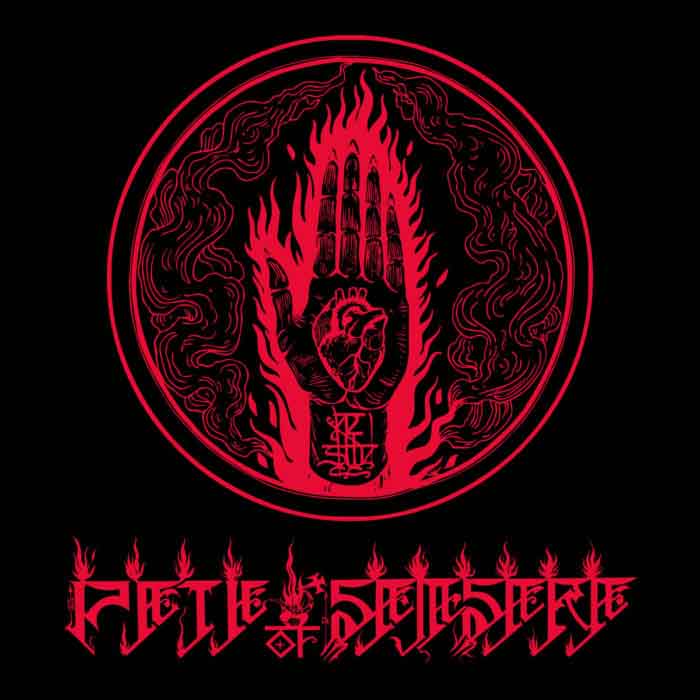
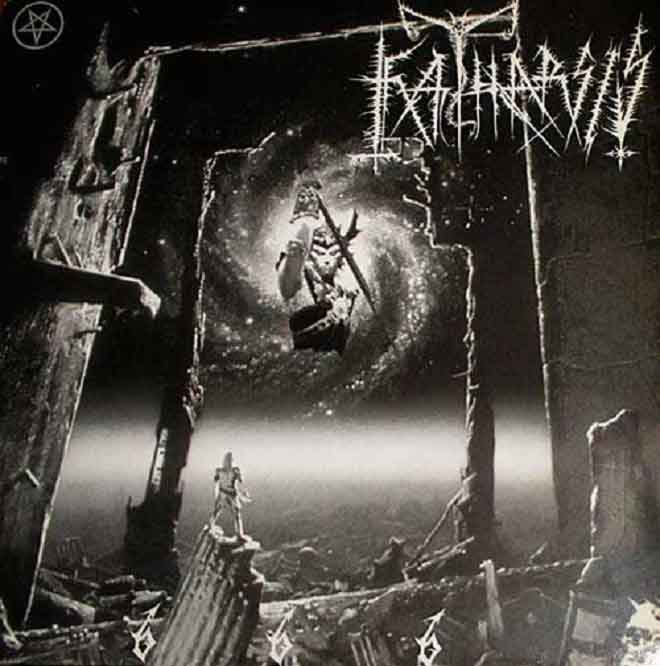

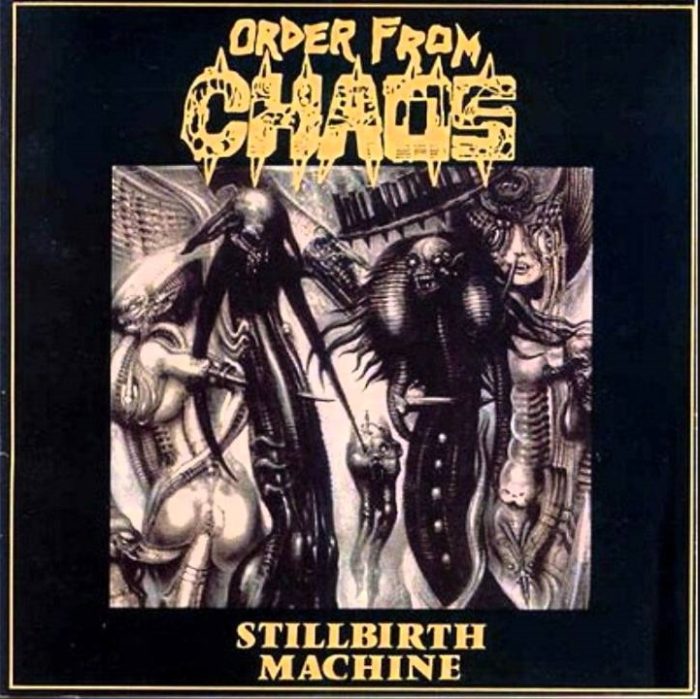
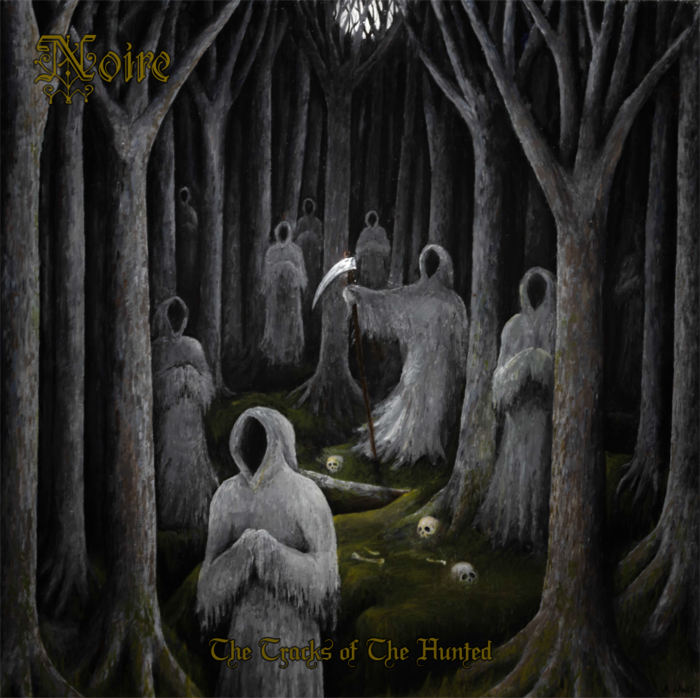

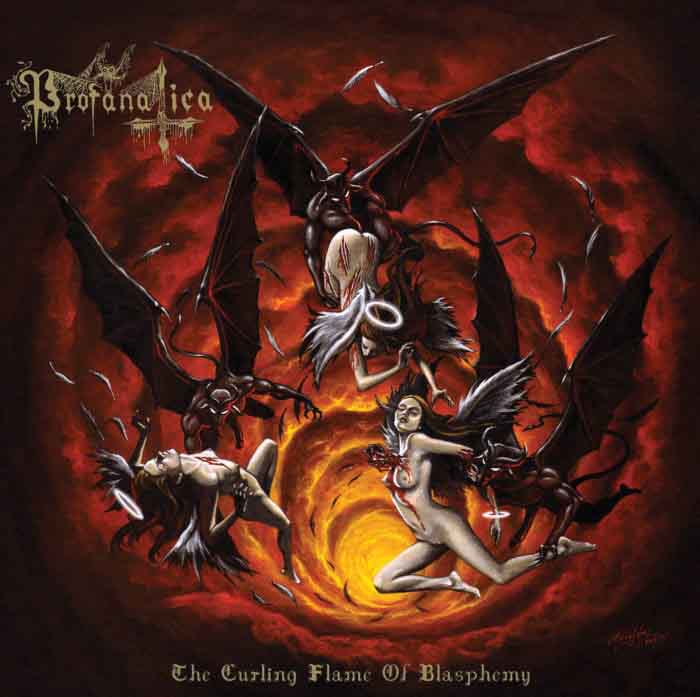
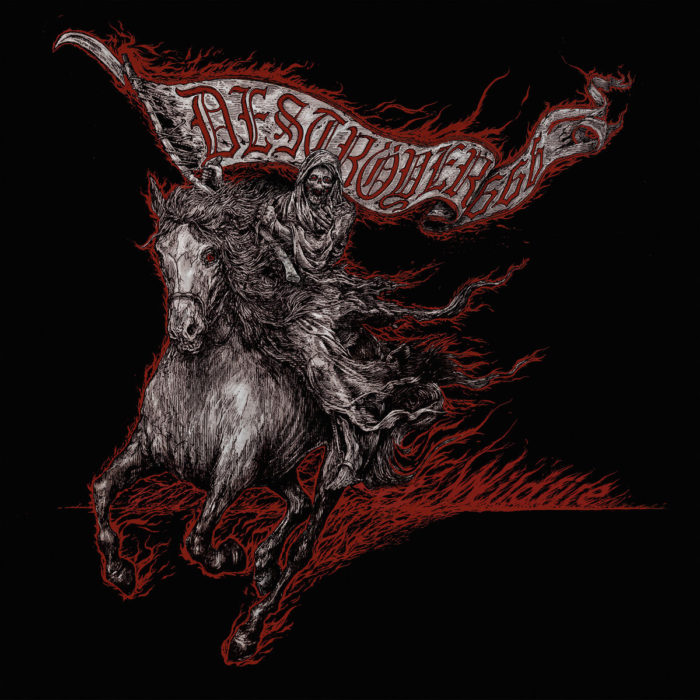
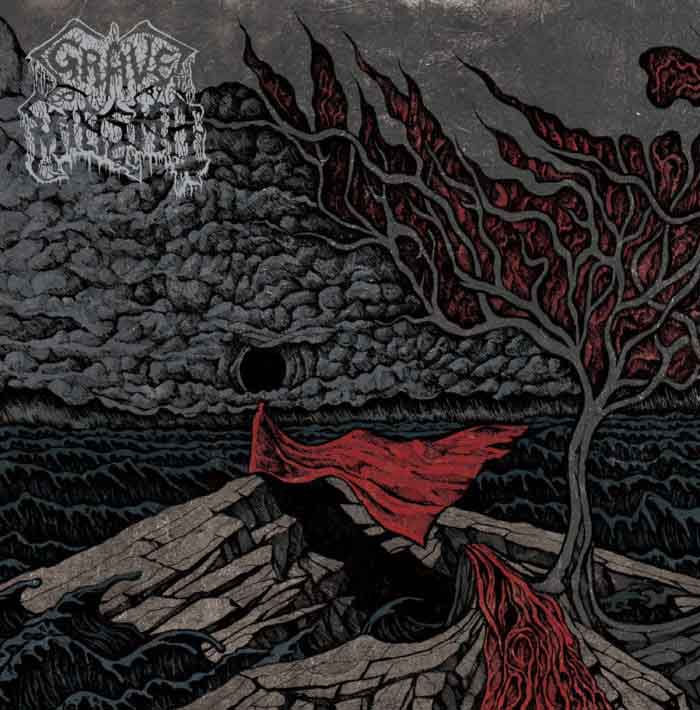


“Metal takes the view of history, of myth and legend, and of nature, but never the individual human”
Oh i see you’ve never listened to Death Mr.Stevens.
Death is not very representative of death metal, especially the crappy latter albums. Most of it is liberal pussy pandering.
please write more often.
tl;dr: This memo begins with a few reminders about metal philosophy, continues with 2 positive album reviews, and then degenerates into a more eloquent/verbose Sadistic Metal Reviews.
It doesn’t “degenerate”, it PROCEEDS, you fucking cumbaya coward.
WOW. Lol. Try “and then everything after could just be filed as a more eloquent/verbose Sadistic Metal Review.” Is that ruthless enough for you my nigga?
I’ve existed solitary and apart for some time, doing my own thing and my own thinking, so I come with some resistance to the idea of a need for a hierarchy of approval. The very idea makes me uncomfortable, but with all the garbage rising, as you say, I see how it may be necessary. I don’t think I could exist long in the position you are in. On the private side of your silence I imagine there’s some weariness from dealing so long with so many who are hot messes. They run together and grow enormous, sloppily rolling along and consuming everything in its path like the Incredible Blob. From that one should definitely keep a distance, and fight through stealth and vigilance and if necessary open warfare to remain oneself alone. Then there are those who drop words like piles of shit, stinking to high heaven and which one must always step around, flies buzzing about their mouths. That narrows it down to the piles of clay which need shaping, or those in whom there’s still much that needs to be worked out, but in that there’s hope and promise.
Someone like you, Brett, with your experience going way back and with the development of your writing skill to where you now have some mastery, is able to listen to a piece of music or read a piece of writing and discern almost immediately its worth or lack of value, where the strength is, where the weak points are, or that hidden soft spot of a structure with seductive gloss and impressive decoration to which if just the right pressure is applied there instantly is revealed it was flimsy all along in construction and collapses. Power is in that, but with power comes responsibility. You can wither and wound, as well as spark and inspire. From the top of the hierarchy looking down into the shadowy depths, into the stinking alleyways, you are able with precision to blow the head off of more than one zombie. What you abbreviate or sum up has in it a flash of insight, a fleck of that gold for which everyone is seeking. The impatient and greedy, elbowing everyone out of the way, are the first to get what they deserve by tripping and falling in the mud. Not everyone can summon and create. Someone who tries to imitate you without the experience you’ve gained through the years and through your own personal labors can do serious damage. Phaethon, nagging and begging and ignorant of what he was dealing with, was given the reins to the Sun Chariot by his father Helios, and after one heady rush of exhilaration ended up losing control and in a ball of flames crashing to earth.
(Note to Rainer Weikusat if you read this. Thanks sincerely for posting that link to “Cargo Cult Science” by Richard Feynman in the comment section of Brett’s “How to Know Your Genre is Played Out” post. I plead ignorance to what you and Ludvig B.B. (V Oddy) are trying to sort out about immigration, what the actual truth is there, thorny issue, but I read the Feynman piece with great interest and relish.)
> where you now have some mastery, is able to listen to a piece of music or read a piece of writing and discern almost immediately its worth or lack of value, where the strength is, where the weak points are, or that hidden soft spot of a structure with seductive gloss and impressive decoration to which if just the right pressure is applied there instantly is revealed it was flimsy all along in construction and collapses.
I would hope that one gains a sufficient understanding of one’s own tastes after the passing of decades. One advantage of writing or critical listening is that it lends to this sort of self-mastery via introspection.
Quite agree, Vigilance. You have a deeper, slower rhythm than Brett. I really appreciate your style too. You seem to thrive in the air of mythology. I think you and I are generally more alike. Self-criticism is a virtue too: Sometimes I can be ponderous, which is why I try to curb and restrain. I don’t think I’m a natural writer, though I have a good feel for words. I work with a more limited palette. It’s part of my particular wisdom to have realized that it’s best for me to do things this way. Each one of us has his particular wisdom. Brett is incredibly impressive in his rapid pace and sweep. Many who read his so-called trashing of the work of others appear to me to miss the lightness and grace with which he does it. I can see him behind what he writes really enjoying himself, playing in fact. The fruit of his labors has ripened. To play in that way is a reward only granted to those who were first a beast of burden, lifting and carrying heavy loads.
For all I generally agree with you, I’d expect a butterfly to drop dead midair upon such a barrage of compliments.
same as gk. Write often pal!
Profanatica criticism is right on. This last album doesn’t live up to Thy Kingdom Cum.it’s more of a retrospective bag of whatever the band is all about. It’s imitating itself.
One of the uphill battles bands making original music face is the apparent inability of the human mind to conceive unfamiliar structures: Something which doesn’t align with the expected will sound vaguely familiar but not really and oddly flat/ dull (trying to describe mean own experiences here). This lacklustre experience will eventually turn into something much more rewarding provided one is willing to wade through the swamp of training one’s mind to acquire familiarity and thus recognize what initially used to went past it (as an extreme example, it took me about 7 months of daily listening to find something beyond unsystematic noise in https://www.youtube.com/watch?v=JL92A7BZM3U).
Grave Miasma is far more accessible than that, so I needed only about 1.5 weeks for finding the remarably clear-cut riffs and oriental-styled solos of an almost ethereal beauty in this “wall of sound” creating “an appaerance of storming violence” (WTF??) by sounding “like someone shouting over a diesel motor with a loose S-belt”. Which I think I can still spend almost half an our listening to as diversion from trying to digest the wall of noise that is Gutter Instinct (A newer, Swedish band. So far, I’ve decoded the 7th track into something I like and haven’t yet given up on all the others).
Decent review.
Not as good as Scaruffi though.
By orcs do you mean [Africans] or arabs
lol, wtf
Harad are the Arabs.
Ungoliant and Shelob are the transexuals.
What’s wrong prozak didn’t like Profanaticas biker bar promo pics with the sweet Harley Davidson Flames encircling the band members?
Thanks for the Gevurahel recommendation. Never heard of them before, and have enjoyed what I have listened to thus far, hoping that it clicks and has the staying power to become a rotation favorite.
I do appreciate whenever the site is able to put forward a newer band worth supporting. It is easy to smash the unworthy, but much harder to replace it with quality.
Stillbirth Machine –
This album is fundamentally a matter of aggression and is arranged appropriately: random wanton machismo. Well-ordered music does not convey such a primal thing; it is, fundamentally, irrational! I understand prozak, your preference for logical phrases – even though you permit exceptions in the case of Profanatica being one of shared taste for transgression – which leads you to damn this release. I suspect had it contained a bit more shitlordisms we’d be hearing a different view but that’s neither here nor there. I think it’s worth calling attention to the fact that this album is earnest and displays genuine spirit in the form of ineffable “metal mess”. The highlighted faults, are in truth, its strengths as one does not expect a genuine outburst of passion to proceed logically. Let’s say that the mission here is not to convey our faculties for pre-meditation; rather, a response “in the moment.”
Hey, Vigilance, man, I saw this album here and drew back too. I’ve always dug this album too. One might bring into the discussion the difference between Logic in musical development and Atmospherics. Brett thinks very logically, following all the way through with it, and in that I understand where he goes in his critique of this album. All those dirtier and more irrational aspects which metal-heads have a fondness for move more in the realm of Atmospherics. Crunchy guitars and attitude tapping into primal aggression. Maybe Atmospherics are the junk food and guilty pleasures of the metal-head. Brett can tell me that it’s ultimately not good for me, is not nutritious, but off and by myself I still go to it and can quit it.
I’m trying to keep this free from personal references as these tend to be uselessly antagonizing (as I’ve learnt so far) and they also don’t belong into a discussion of music. I can’t promise that this will suceed, though. Further, my knowledge of sheet music theory is dim because of a complete lack of interest. I like improvisations a lot but have had enough of them in the last time for some time.
An idea or a thought have to be put into words to manifest themselves, that is, to go beyond the realm of more or less vague emotional reactions to something. But this means that both ideas and thoughts end up being (complex) sound combinations and the way something is worded, that is, how it sounds, actually affects the reception of the content because it communicates a lot of related things words are too coarse-grained for. But complex sound combinations don’t have to be composed of words, eg, a guitar riff is one, too. This means its also something like a thought, just one humans can’t articulate without a lot of auxiliary gear. But they’re capable of perceiving it without that. As the parts making up these kinds of sound combinations have no defined, abstract meaning, they can’t communicate abstract ideas one would usually express with words.
There’s a theory (and quite a bit of theory) that music is supposed to illuminate abstract (in a very broad sense) ideas by combining primitive music tokens with a somewhat defined abstract meaning, that is, a somewhat known effect upon a listener, in complex ways and as doing so successfully requires both a lot of learning and creative genius, people capable of doing this are held in high regard by other people who bought into this theory. The results of this are tiresome at times as the music tends to deal highflying topics and the associated, highflying emotions as these are more easily expressed in this language, but they’re often not bad.
It’s not necessary to construct music in this indirect way, though, were the sounds are never really regarded as first order citizens but just as vehicles for something else. It’s equally possible to create complex sound combinations by moving from sound to sound alone, without ever referencing anything abstract (this is an idealized description as it’s possible to intend the first and accomplish the second or vice versa). The result is then still something a human mind kind perceive and follow just as if words had been used but it doesn’t ever crystallize into something abstract which could be communicated with words and people who seek abstracta in music apparently tend to feel at a loss when confronted with that as the handle they expect to be able to grab in order to get a hold to start orienting themselves simply isn’t there. Considering
Wir sind gewohnt, daß die Menschen verhöhnen,
Was sie nicht versteh’n,
[Goethe, Faust I]
this will then end in all kinds of »witty« condemnations whose presumed relationship to the actual music can end up being seriously bewildering. Eg, Grave Miasma is (to me) very quiet and contemplative music best listened to alone in the depth of the night, storming violence seems totally bizarre to me in this context.
NB: I tend to like the second kind of music better as the first is often to obvious for me to really enjoy it. But I’m not making a value judgement of one or the other. I’m just a bit sad for people who are apparently blind to the inellectual pleasure of following something like the about 58 minutes of Krisiun Forged in Fury.
This is all so beautifully and thoughtfully put, Rainer. You’ve given me quite a bit to contemplate. I think of larger complementary oppositions such as Nietzsche’s Apollonian and Dionysian, or to whittle it down, though still remaining very general, and to see it in another way, logic-guided thought as opposed to intuitive-guided thought. The intuitive way is able to get into regions of experience and understanding that the logical way cannot, and vice versa. It’s interesting that you mention Night, one might say the very element of the intuitive, where the feelers are out and one “sees” without really seeing and “hears” without really hearing. A communication happens on a more subconscious level, between waking and dream, a listening and seeing, even a smelling, other senses too seem to open for which one has no name. So the intuitive is more aware of and moved by tones and atmospheres. At the same time, as with anything else, pushed too far and exceeding its domain, intuitive-guided thinking also leads to some absurdities, and that’s when the logic-guided thinker moves in with his rational confidence and even arrogance and applies the whip. Brett is interesting because how he relentlessly applies logic consistently and everywhere he strikes me as a good representative enlightenment thinker. Everything drawn up toward the sun and waking consciousness. He seems to have little patience for dark ambiguities. He applies that logic even to artists who move intuitively and create more enigmatic works, which belong to the night and to the irrational, to the world of dream and nightmare. Your disagreements with each other are very interesting and revealing. I don’t think either of you are wrong. I think it’s a matter of you just being different kind of creatures, to some extent speaking different languages.
I recall the Order from Chaos box-set being praised here some time ago. Maybe that was David or Daniel. They went back and forth on Ares Kingdom as well. I haven’t listened to either in a while, so maybe that says enough right there.
You mean deathcore?
Wow, where was PATH OF SAMSARA when I was in my early teens? Can’t say I am that into it, though I understand the thought behind the review, but it will be a neat little parlor trick to pull out at parties for the classic/pysch-rock devotees. My dad and uncles are gonna go ape over it, I know that much.
I’m glad that it turns out I’m not some jew-queer dingleberry for not “getting” Stillbirth Machine (and Order From Chaos in general). I’ve tried at least a dozen times over the last few years to understand why everyone felates themselves over this album and it was beyond me.
Also we need reviews of the Graveland albums that haven’t been reviewed.
Most of them begin with one or two good tracks and then turn to shit
thanks for the reminder about that hot tub video – https://www.youtube.com/watch?v=yAJnpaFRrlw
Keith says go fuck your gay lover Daniella Maarat in the asshole, Ms. Stevens